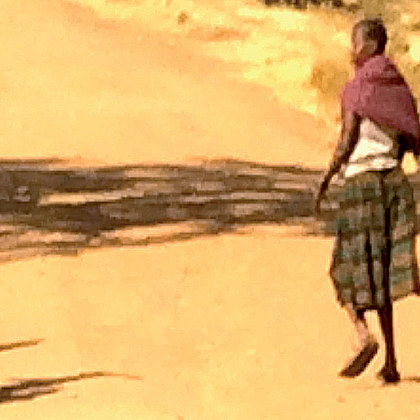Schwerpunktredaktion: Tiina Kontinen, Henning Melber
Print ISSN: 0258-2384│Online ISSN: 2414-3197
Schwerpunktheft lesen (Digital)
Schwerpunktheft kaufen (Print)
Civil Society, Cooperation and Development (Introduction)
- Abstract
Introduction
Civil Society in Sub-Saharan African Post-Conflict States: A Western Induced Idea(l)?
- Abstract
The promise of a flourishing, vibrant and democracy-committed civil society has emerged as a posited panacea in ongoing peacebuilding, democratisation and development assistance over the past three decades. As for sub-Saharan African post-conflict states, however, the local context and understanding of civil society remains often unaddressed. By and large, civil society has become an uncontested idea(l). This article argues that a classical Western liberal-individualist model of civil society is continuously challenged by the cultural and historical particularisms of states in the sub-Saharan African region. Settled modes of thinking in peacebuilding and development research and practice have to take into account local characteristics that are already part of, and grounded in, existing and historically rooted experiences.
Civil Society Under Different Political and Aid Regimes in Nicaragua
- Abstract
While the term civil society is frequently used in academic writings and development discourses, there is a tendency to conflate different and potentially conflicting meanings of the concept. This article uses a historical analysis of Nicaragua to develop a more useful understanding of civil society. Nicaragua has undergone dramatic political changes over the past 35 years, including significant changes to its civil society. I argue that assumptions of civil societys value orientation must be discarded; that boundaries between civil society and the state are neither fixed nor absolute; and that development cooperation has important structuring effects for civil society in aid-dependent countries.
NGO's, Aid Withdrawal and Exit Strategies
- Abstract
However, there is little publicly available evidence about this phenomenon and its impact on both INGOs and their civil society partners. Drawing on data gathered through participatory research and exchange with INGOs based in several European countries, this article highlights the range of countries and regions affected by aid exit, some reasons behind withdrawal, approaches taken, and various challenges and dilemmas that INGOs face. It questions the contradiction between a desire amongst INGOs to learn from others about exit strategies, and the lack of accessible documentation and data made available by INGOs about their own experiences for others to use.
Ethical, Managerial and Methodological Perspectives in Knowledge Creation in Two Finnish Civil Society Organisations
- Abstract
The recent drives for implementation of results-based management and human rights-based approaches in international development have increased pressures to improve and modify monitoring and evaluation systems in CSOs. On the basis of an analysis of two Finnish civil society organisations (CSOs) committed to participation and empowerment, the article examines dilemmas in practical efforts to develop new approaches to meet the variety of needs. In this context, the ethical, methodological and managerial perspectives on knowledge creation in CSOs are identified and the dilemmas in knowledge practices related to monitoring and evaluation are examined.
The Role of the Diaspora in the Civil Society Development of Somalia/Somaliland: Reflections on the Finland-based Somali Diaspora
- Abstract
The diaspora in different parts of Somalia, a country that has suffered from prolonged conflict, and state collapse since 1991, and in which widespread poverty is a reality, has an essential role in concretely helping people. There is also a growing enthusiasm about the diasporas potential for developing the civil society in Somalia. However, in the case of Somalia the definition of civil society is difficult to establish since the context is characterised by complex political problems, state collapse and the fact that NGO development cooperation has become a booming business. In this context it is relevant to critically assess the role of the Somali diaspora in Somalia/Somalilands civil society development. This article analyses in particular what kind of developmental potential the diaspora might have for civil society in the Somali context. The article is based on data collected using multi-sited and mixed methods in Finland and Somaliland in the period 20082011.
Caught in the Funding Game: The Challenges of NGO Research within Development Aid
- Abstract
This article describes the methodological challenges I encountered during my ethnographic case study on the cooperation between two NGOs. My experiences show how the NGO actors strove to influence my data collection and analyses. This struggle for representation provides important insights into what kind of environment development aid creates for Southern NGOs, tying them to a fierce funding game which includes competition for funding and the need to demonstrate success. My research became subject to the structural pressure within development aid to demonstrate success, and my study became a battleground for divergent interests and logics. It is common for students and scholars to enter the field of development aid through NGOs or projects, and this often results in complications in the reconciliation of different interests and logics related to the production of knowledge. This should also be acknowledged in teaching and supervision.

